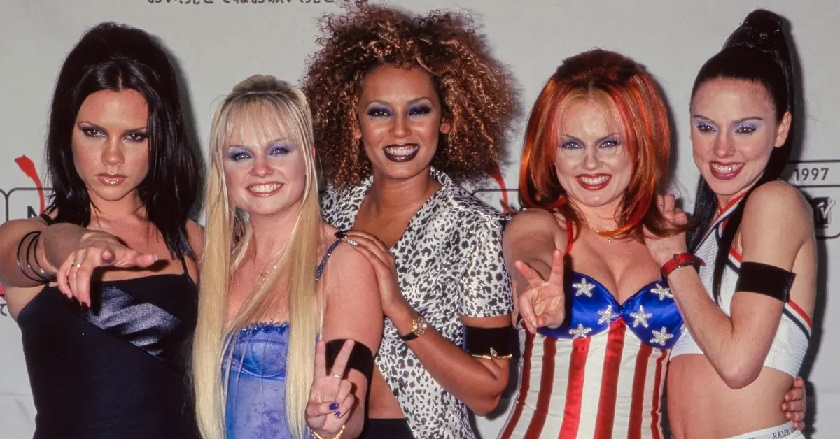
The Spice Girls, one of the most iconic girl groups in pop music history, left an indelible mark on the 1990s music scene. Their vibrant personalities, catchy songs, and “Girl Power” mantra resonated with millions worldwide. However, despite their meteoric rise to fame, the group disbanded at the height of their success. The question that lingers in the minds of many fans is: Why did the Spice Girls break up? In this comprehensive article, we delve deep into the reasons behind the group’s breakup, exploring the dynamics that led to their separation and the lasting impact on pop culture.
The Formation and Rise of the Spice Girls
To understand the reasons behind the breakup, it’s essential to revisit the origins of the Spice Girls. Formed in 1994, the group consisted of five members: Victoria Beckham (Posh Spice), Melanie Brown (Scary Spice), Emma Bunton (Baby Spice), Melanie Chisholm (Sporty Spice), and Geri Halliwell (Ginger Spice). The group’s formation was the result of an extensive audition process, and they quickly signed with Virgin Records.
Their debut single, “Wannabe,” released in 1996, catapulted the Spice Girls to international stardom. The song’s infectious energy and message of female empowerment struck a chord with listeners, making it an anthem for a generation. The group’s debut album, Spice, followed shortly after and became a massive success, selling over 23 million copies worldwide. The Spice Girls had arrived, and they were unstoppable—or so it seemed.
The Pressure of Fame
With fame came immense pressure. The Spice Girls were thrust into the global spotlight, and the demands on their time and energy were relentless. Touring schedules, media appearances, and recording commitments took a toll on the group members, both individually and collectively. The pressure to maintain their image and deliver hit after hit was overwhelming.
As their fame grew, so did the scrutiny from the media. The Spice Girls were constantly under the microscope, with every move and decision analyzed and critiqued. This intense level of scrutiny began to strain the relationships within the group. Creative differences started to emerge, and the once-tight bond between the members began to fray.
Geri Halliwell’s Departure
The first significant blow to the group came in 1998 when Geri Halliwell announced her departure from the Spice Girls. Halliwell’s departure was a shock to fans and the music industry alike. As the group’s most outspoken member and a driving force behind their “Girl Power” message, her exit left a void that was difficult to fill.
Halliwell cited exhaustion and differences with the other members as reasons for her departure. However, there were also rumors of tensions between Halliwell and the group’s management, as well as disagreements over the direction of their music. Her departure marked a turning point for the Spice Girls and was the beginning of the end for the group as a cohesive unit.
The Impact of Solo Projects
Following Geri Halliwell’s departure, the remaining four members attempted to continue as a quartet. They released their third album, Forever, in 2000, which showcased a more mature sound. However, the album received mixed reviews and did not achieve the same level of success as their previous work.
During this period, the members began to pursue solo projects. Victoria Beckham launched a fashion career, Melanie C focused on her solo music, Emma Bunton explored television, and Melanie B pursued acting. These individual pursuits further strained the group’s unity, as each member sought to establish their identity outside of the Spice Girls.
The pursuit of solo careers highlighted the differences in priorities among the group members. While some were eager to continue with the Spice Girls, others were more interested in pursuing their personal ambitions. This divergence in focus made it increasingly difficult to maintain the group’s cohesion and commitment to their collective success.
Management and Directional Disputes
Another critical factor in the breakup of the Spice Girls was the conflict with management. The group’s manager, Simon Fuller, played a pivotal role in their rise to fame, but as time went on, tensions began to surface. The Spice Girls were known for their strong-willed personalities, and as they gained more experience in the industry, they began to assert more control over their careers.
This desire for control led to clashes with Fuller, who had a specific vision for the group’s future. The members felt that Fuller’s management style was becoming too controlling, and they wanted more autonomy in their decisions. In 1997, the group made the bold decision to part ways with Fuller and manage themselves.
While this move was a statement of their independence, it also led to challenges in managing their careers. Without the guidance of an experienced manager, the group struggled to navigate the complexities of the music industry, leading to further internal disagreements and confusion about the direction of their music and brand.
Cultural Shifts and Changing Tastes
The late 1990s and early 2000s saw significant shifts in popular culture. The music landscape was evolving, with new genres and artists emerging that captured the public’s attention. The bubblegum pop sound that had defined the Spice Girls’ music was beginning to lose its appeal as audiences gravitated towards more diverse and experimental sounds.
As cultural tastes changed, the Spice Girls found it challenging to adapt their music and image to remain relevant. Their attempts to evolve were met with mixed results, and the group struggled to maintain the same level of influence they once had. The combination of changing cultural dynamics and the internal challenges the group faced made it increasingly difficult to sustain their success.
The Official Breakup and Legacy
By the early 2000s, it was clear that the Spice Girls’ time as a group was coming to an end. In 2001, the group officially announced that they were going on an indefinite hiatus, effectively marking the end of the Spice Girls as the world knew them.
Despite the breakup, the legacy of the Spice Girls remains strong. Their influence on pop culture, music, and the concept of “Girl Power” continues to resonate with fans and artists alike. The Spice Girls paved the way for future girl groups and female artists, and their impact is still felt in the music industry today.
Reunions and the Future
Since their initial breakup, the Spice Girls have reunited on several occasions, most notably for their 2007-2008 reunion tour and the 2012 London Olympics closing ceremony. These reunions have been met with overwhelming enthusiasm from fans, proving that the Spice Girls still hold a special place in the hearts of many.
As of now, the future of the Spice Girls as a group remains uncertain. While individual members continue to enjoy successful careers in their respective fields, the possibility of another reunion is always on the horizon. Whether or not they choose to reunite again, the Spice Girls’ legacy as one of the most influential pop groups of all time is secure.
Read More: Spice Girls “Wannabe” Lyrics: A Cultural Phenomenon

